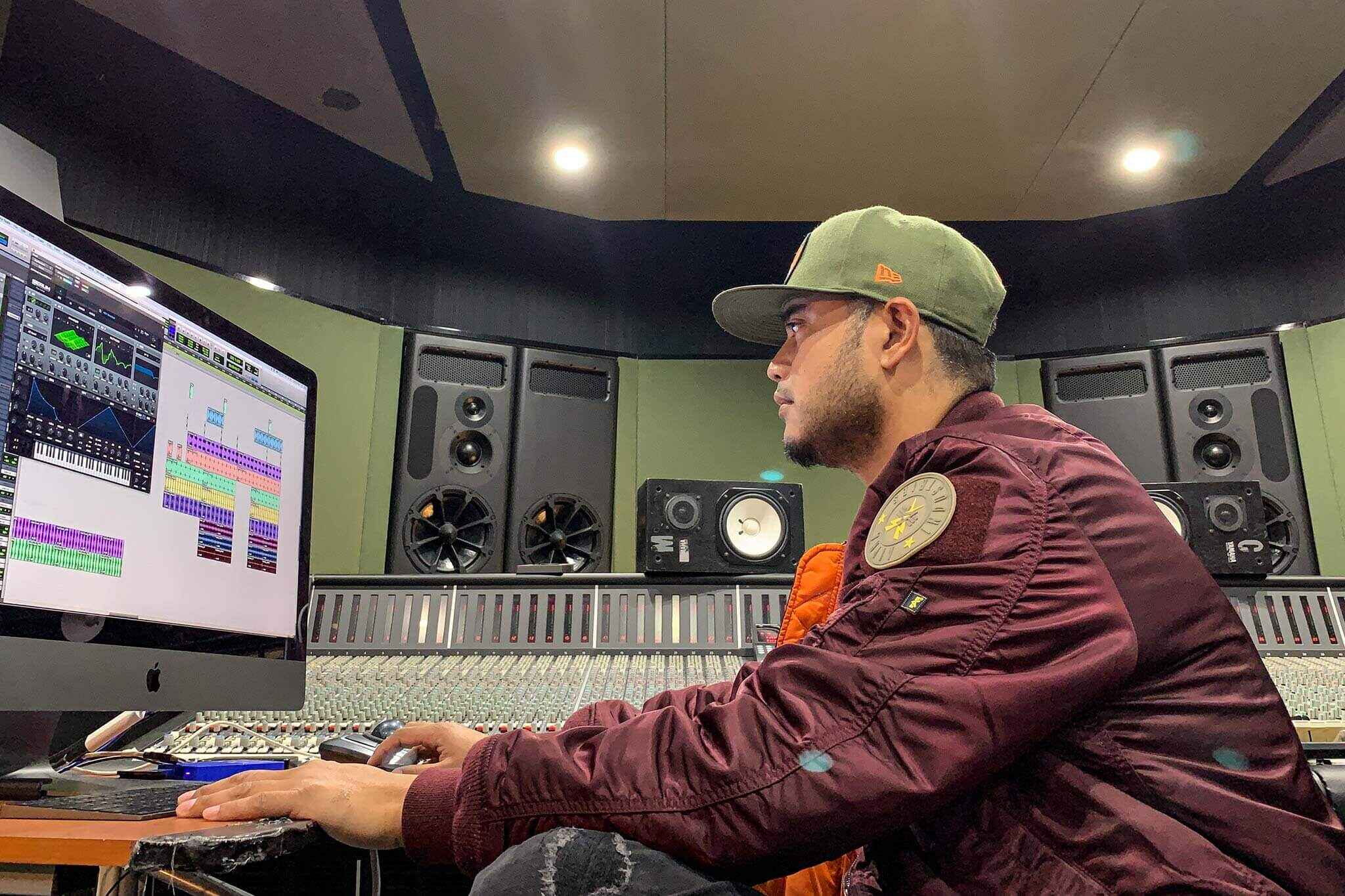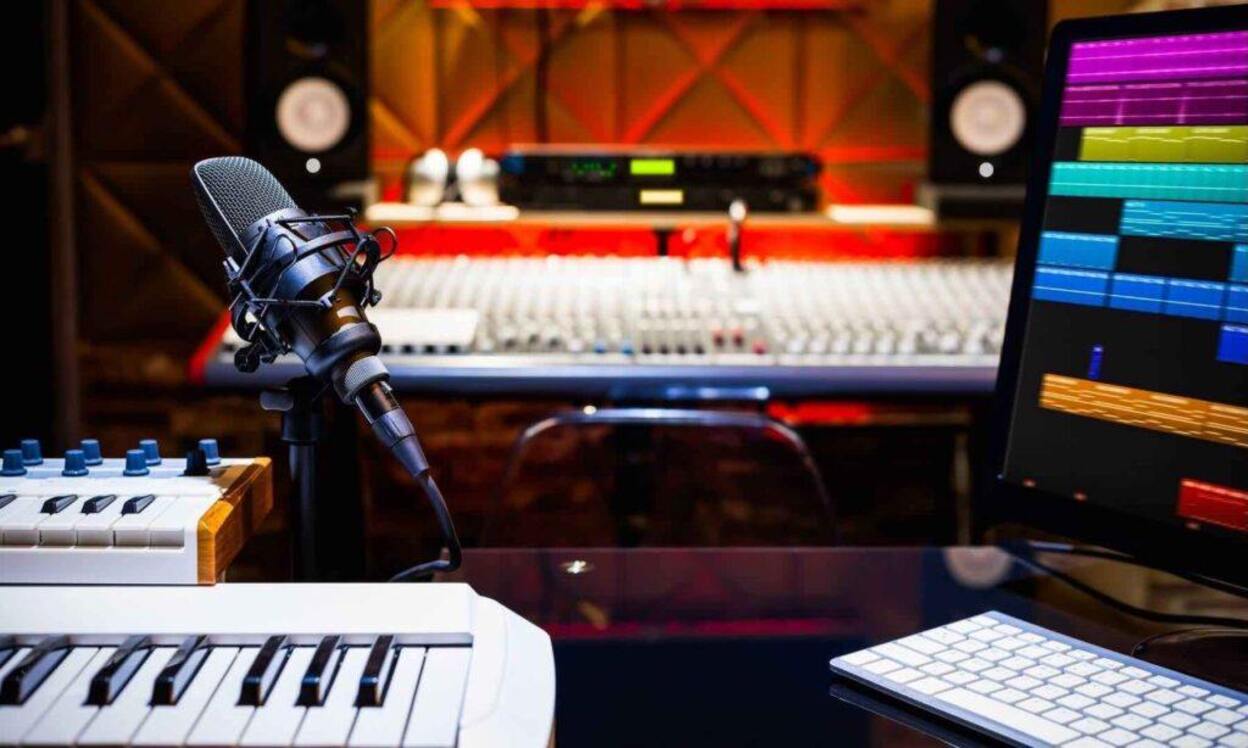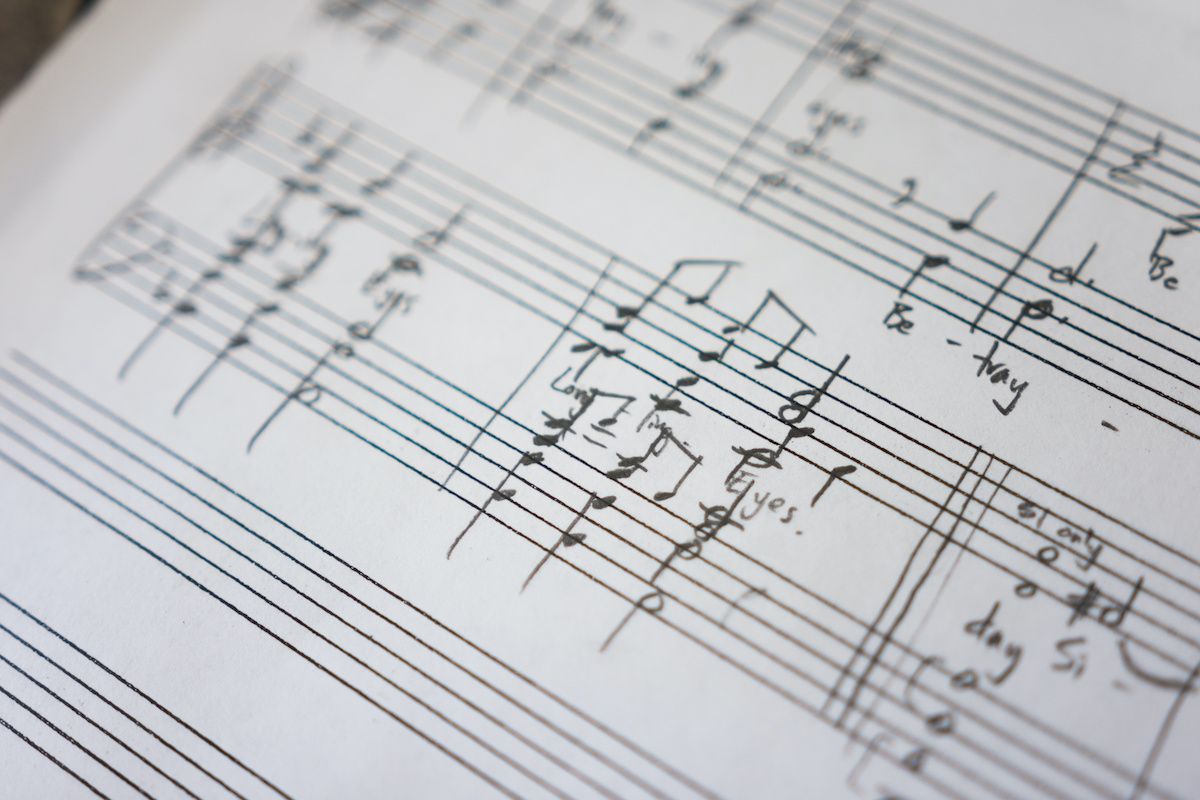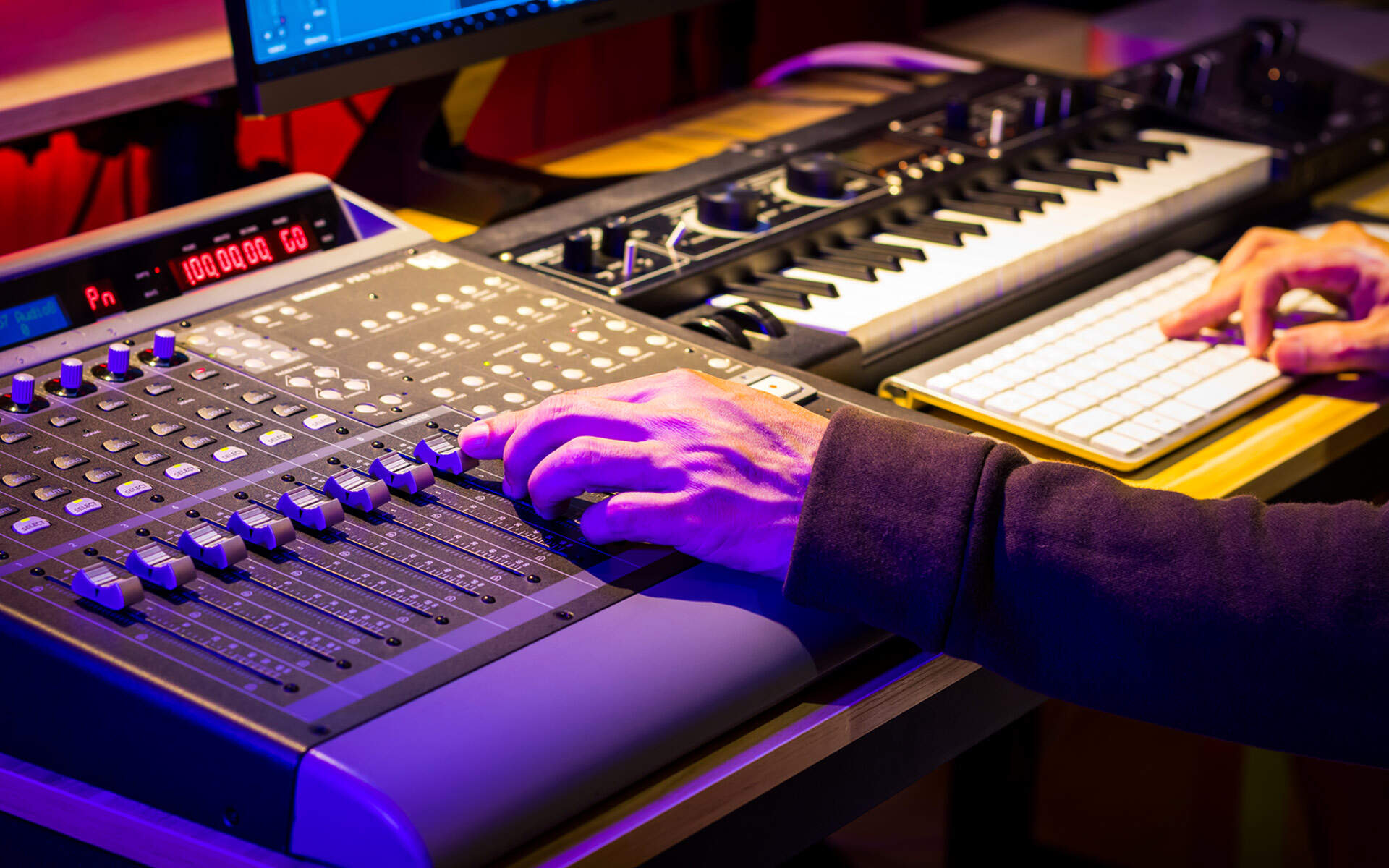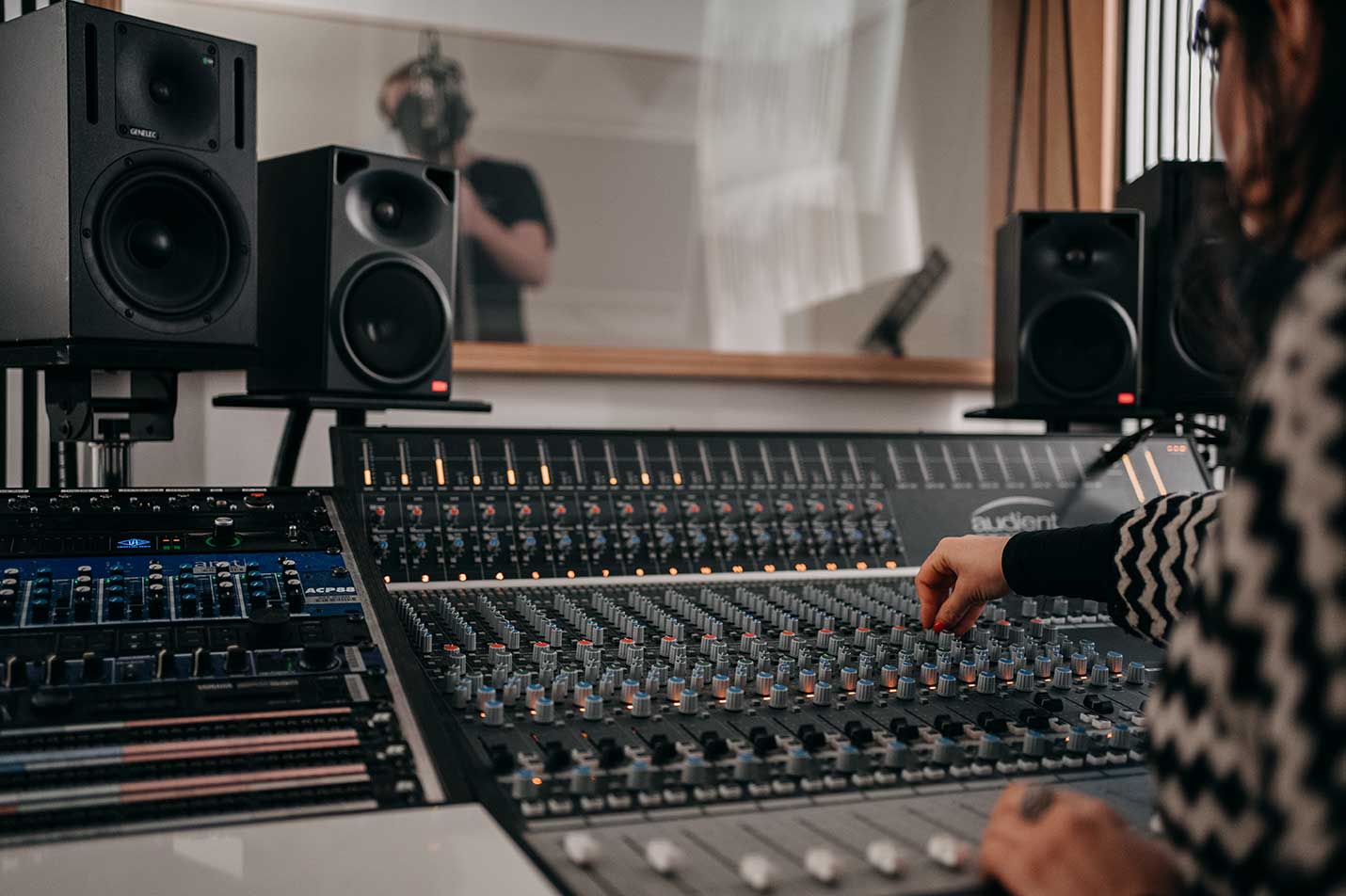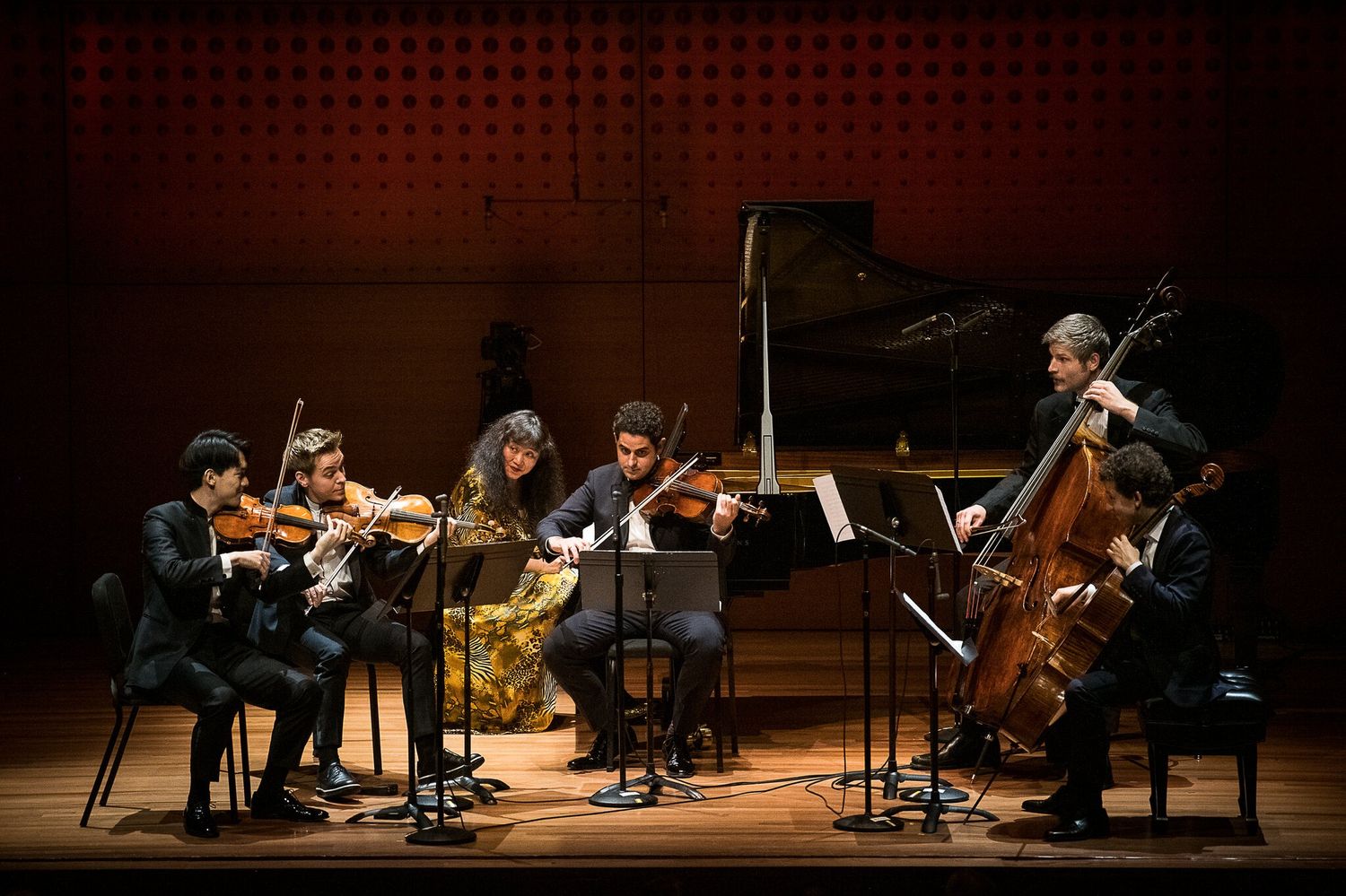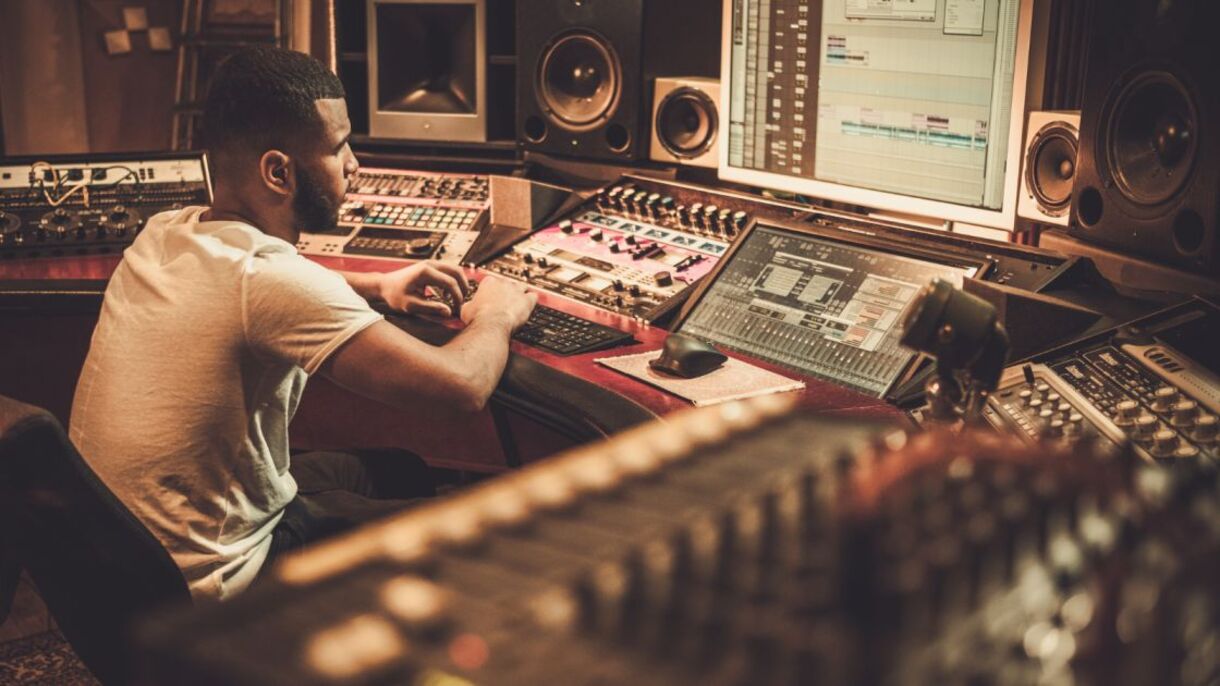Home>Production & Technology>Producer>How To Find A Producer For Music
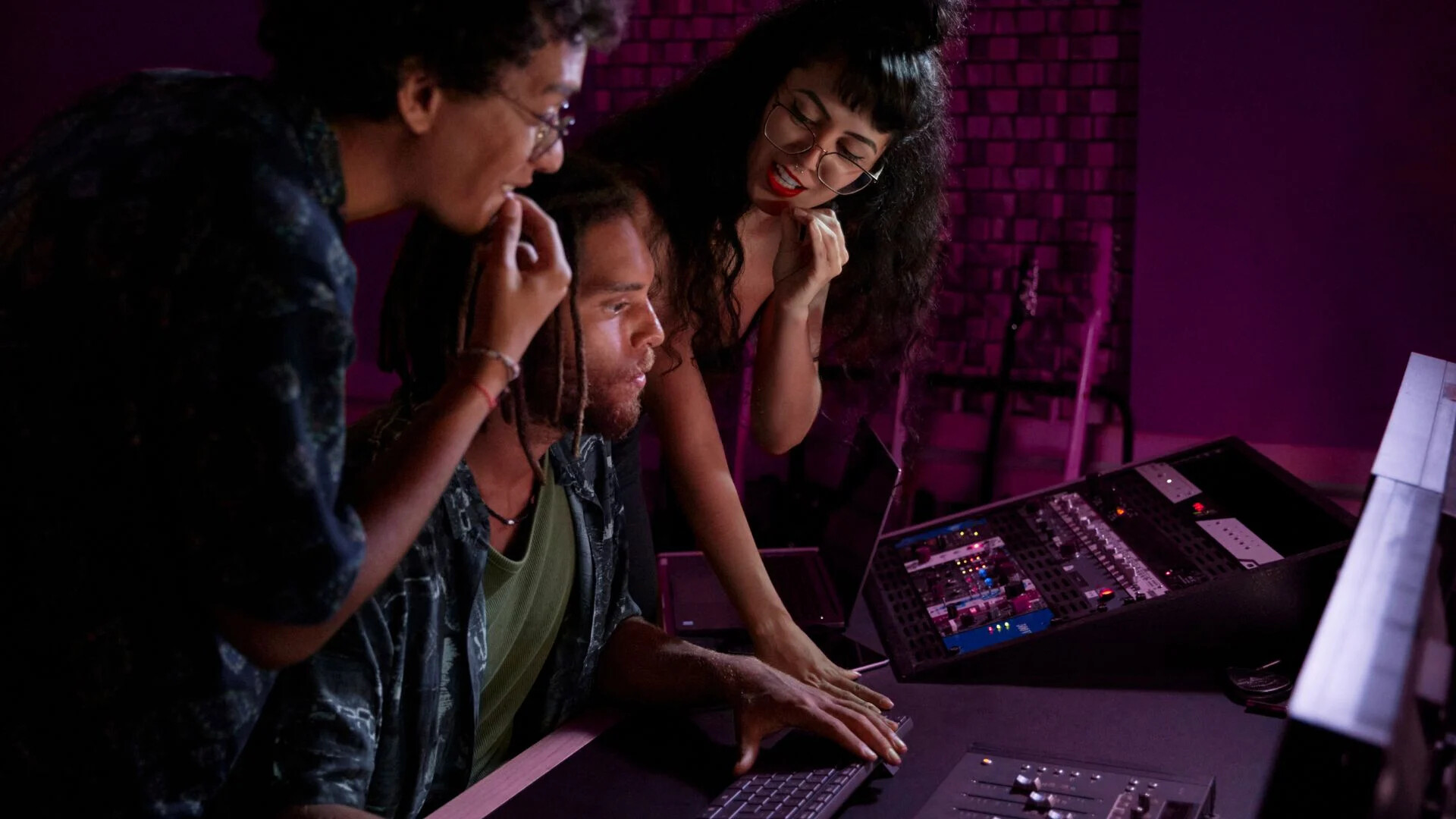

Producer
How To Find A Producer For Music
Published: March 6, 2024
Looking to find a music producer? Learn how to find the right producer for your music and take your sound to the next level.
(Many of the links in this article redirect to a specific reviewed product. Your purchase of these products through affiliate links helps to generate commission for AudioLover.com, at no extra cost. Learn more)
Table of Contents
Understanding Your Music Goals
Before embarking on the journey to find a producer for your music, it's crucial to have a clear understanding of your music goals. This foundational step sets the tone for the entire production process and ensures that you and your potential producer are aligned in vision and purpose. Whether you're a solo artist or part of a band, taking the time to define your music goals will not only streamline the producer search but also elevate the quality of your musical output.
To begin, reflect on the type of music you create and the message you aim to convey through your art. Consider the emotions you want your audience to feel when listening to your music and the overarching theme or narrative that ties your songs together. Are you striving for a raw, authentic sound, or do you envision a more polished and commercially viable production? Understanding these nuances will aid in pinpointing a producer whose expertise aligns with your artistic direction.
Furthermore, assess the stage of your music career and the specific milestones you aim to achieve with the help of a producer. Whether you're looking to record a debut album, release a series of singles, or refine your sound for live performances, having a clear roadmap will guide your producer search and enable productive discussions when engaging with potential collaborators.
Additionally, it's essential to consider your long-term aspirations within the music industry. Are you aiming for mainstream recognition, or do you prioritize cultivating a dedicated fan base within a niche genre? Understanding your overarching career goals will influence the type of producer who can best support your musical journey, whether it's someone with extensive industry connections or a producer renowned for nurturing emerging talent.
In essence, understanding your music goals is not merely a preliminary step in finding a producer; it's a foundational pillar that shapes the trajectory of your musical endeavors. By delving deep into your artistic vision, emotional resonance, career aspirations, and desired sonic identity, you pave the way for a harmonious collaboration with a producer who not only understands your music but also shares your passion for bringing it to life in its most authentic and impactful form.
Researching Potential Producers
Researching potential producers is a pivotal phase in the quest to find the perfect collaborator for your music. This process involves delving into the vast landscape of music production to identify individuals whose expertise, style, and track record align with your artistic vision. Here's a comprehensive guide to navigating this crucial stage:
-
Online Platforms and Directories: Start your search by exploring online platforms and directories dedicated to music producers. Websites such as SoundBetter, Music Producers Guild, and AllMusic offer extensive databases of producers, complete with detailed profiles, discographies, and client testimonials. These platforms serve as invaluable resources for discovering producers across various genres and geographical locations, allowing you to cast a wide net in your search.
-
Listening to Discographies: Once you've identified potential producers, immerse yourself in their discographies. Listen to a diverse range of tracks they've produced, paying close attention to the sonic elements, production techniques, and overall aesthetic. This exploration will provide insight into the producer's versatility, creative range, and ability to elevate diverse musical styles. Additionally, consider the commercial success and critical acclaim of the artists they've collaborated with, as this can offer valuable context regarding the producer's impact on the music industry.
-
Artist Collaborations and Recommendations: Take note of the artists and bands that resonate with your musical sensibilities and investigate the producers behind their work. Artists often credit their collaborators in album liner notes, interviews, and social media posts, providing a treasure trove of information about the creative minds shaping their sound. Furthermore, reach out to fellow musicians and industry contacts for recommendations and firsthand experiences working with producers. Personal referrals can shed light on a producer's work ethic, communication style, and ability to nurture an artist's vision.
-
Industry Events and Showcases: Attend industry events, music showcases, and live performances to witness producers in action. These settings offer a firsthand glimpse into a producer's live production skills, stage presence, and ability to bring out the best in artists during performances. Engaging with producers in a live setting can also facilitate organic connections and provide valuable insights beyond what a digital profile can convey.
By immersing yourself in the world of music production and conducting thorough research, you position yourself to identify producers whose expertise, artistic sensibilities, and professional ethos resonate with your music goals. This diligent approach lays the groundwork for meaningful connections and sets the stage for the next phase of engaging with potential collaborators.
Reaching Out and Making Connections
After conducting thorough research and compiling a list of potential producers whose work aligns with your musical aspirations, the next crucial step is to initiate contact and establish meaningful connections. This phase marks the beginning of a dialogue that can ultimately lead to a transformative collaboration. Here's a detailed exploration of the process of reaching out and making connections with potential producers:
-
Crafting Personalized Introductions: When reaching out to producers, it's essential to craft personalized and genuine introductions that reflect your admiration for their work. Tailor your initial communication to convey your specific reasons for being drawn to their production style, artistic vision, or previous projects. This personalized approach demonstrates your sincerity and sets the stage for an authentic connection.
-
Engaging Through Social Media: Utilize social media platforms to engage with producers on a more informal level. Follow their professional accounts, interact with their content, and participate in discussions related to music production. Meaningful interactions on platforms such as Instagram, Twitter, and professional networking sites can help you establish a rapport and demonstrate your genuine interest in their work.
-
Attending Industry Events and Workshops: Actively participate in industry events, workshops, and music conferences where producers are likely to be present. These settings provide invaluable opportunities to engage in face-to-face conversations, gain insights into a producer's creative ethos, and showcase your passion for collaboration. Meaningful connections forged in person often lay the groundwork for enduring professional relationships.
-
Leveraging Mutual Connections: Explore your network of fellow musicians, industry professionals, and collaborators to identify mutual connections with the producers you're targeting. A warm introduction or recommendation from a mutual contact can significantly enhance your initial outreach and facilitate a more receptive response from the producer.
-
Demonstrating Genuine Interest: Throughout the outreach process, emphasize your genuine interest in the producer's work and the potential for a collaborative partnership. Share specific insights about their production techniques, the impact of their work on your musical journey, and your vision for the collaborative process. Authenticity and enthusiasm are key factors in capturing a producer's attention and fostering a meaningful connection.
By approaching the outreach process with sincerity, respect, and a genuine passion for collaboration, you position yourself to make meaningful connections with potential producers. Each interaction, whether digital or in-person, serves as an opportunity to convey your artistic vision, establish rapport, and lay the groundwork for a collaborative partnership that transcends mere professional transactions.
Evaluating Producer's Portfolio and Style
Evaluating a producer's portfolio and style is a critical phase in the process of finding the right collaborator for your music. This stage involves a meticulous examination of the producer's body of work, artistic sensibilities, and overall approach to music production. By delving deep into a producer's portfolio and style, you gain invaluable insights that inform your decision-making and pave the way for a harmonious and productive collaboration.
When evaluating a producer's portfolio, it's essential to listen to a diverse array of tracks they have produced across different genres, artists, and projects. Pay close attention to the sonic textures, mixing techniques, and overall sonic identity present in their work. This comprehensive exploration offers a glimpse into the producer's versatility, creative range, and ability to adapt their production style to suit diverse musical sensibilities.
Furthermore, consider the impact of the producer's work on the artists they have collaborated with. Assess the commercial success, critical acclaim, and artistic evolution of the artists' projects under the producer's guidance. This evaluation provides crucial context regarding the producer's ability to elevate artists' visions, enhance their sonic identity, and contribute to the overall success of their musical endeavors.
In addition to the technical aspects of a producer's portfolio, it's equally important to discern their artistic style and ethos. Reflect on the emotional resonance, thematic coherence, and sonic innovation evident in the producer's body of work. Consider whether their artistic sensibilities align with your own musical vision and whether their style complements and enhances the essence of your music.
Moreover, seek to understand the producer's approach to collaboration, communication, and nurturing artists' creative expression. This involves researching their interactions with artists, their ability to cultivate a supportive and inspiring studio environment, and their commitment to realizing the artist's vision while infusing their expertise.
By thoroughly evaluating a producer's portfolio and style, you equip yourself with a comprehensive understanding of their artistic prowess, collaborative ethos, and potential to elevate your music. This discerning approach empowers you to make informed decisions and forge partnerships with producers whose body of work and artistic sensibilities resonate deeply with your musical aspirations.
Discussing Budget and Expectations
Engaging in open and transparent discussions about budget and expectations is a pivotal aspect of the producer selection process. This phase serves as a foundation for establishing mutual understanding, aligning objectives, and fostering a productive working relationship. When broaching the topic of budget and expectations with a potential producer, it's essential to approach the conversation with clarity, respect, and a collaborative mindset.
Initiating the discussion by outlining your budget parameters provides the producer with a clear understanding of the financial framework within which the collaboration will unfold. Be forthcoming about the financial resources available for the project, including recording, mixing, mastering, and any additional production elements. Communicating your budget constraints upfront enables the producer to assess the feasibility of the project within the specified financial parameters and propose a tailored approach that aligns with your resources.
Simultaneously, articulating your expectations for the production process, creative input, and project timeline is instrumental in establishing a shared vision for the collaboration. Clearly express your artistic goals, sonic aspirations, and the specific outcomes you aim to achieve through the collaboration. Whether you seek a producer who can bring a fresh perspective to your sound, provide mentorship in song arrangement, or contribute to the overall sonic aesthetic, articulating these expectations sets the stage for a harmonious and purpose-driven partnership.
Moreover, discuss the division of responsibilities, production credits, and potential revenue sharing models to ensure that both parties are aligned on the terms of engagement. Addressing these aspects transparently fosters a sense of fairness and accountability, laying the groundwork for a collaborative process built on mutual respect and shared ownership of the creative output.
Approach the discussion with a receptive mindset, valuing the producer's insights and expertise in shaping the project within the specified budget and expectations. Emphasize the importance of open communication, flexibility, and a shared commitment to realizing the artistic vision while navigating the practicalities of budget constraints.
By engaging in candid and constructive discussions about budget and expectations, you set the stage for a collaborative partnership grounded in transparency, mutual respect, and a shared dedication to bringing your musical vision to fruition. This phase not only aligns the practical aspects of the collaboration but also fosters an environment of trust and clarity, essential elements for a successful and fulfilling producer-artist relationship.
Signing a Contract and Setting Terms
Signing a contract and setting terms marks a pivotal juncture in the producer-artist collaboration, solidifying the mutual commitments, rights, and responsibilities of both parties. This formal agreement serves as a safeguard, delineating the parameters of the collaborative endeavor and establishing a framework for a harmonious and productive working relationship.
The contract should encompass a comprehensive scope of the project, encompassing crucial details such as the duration of the collaboration, the specific services to be rendered by the producer, and the artistic vision and goals of the artist. It should also outline the financial aspects, including the agreed-upon budget, payment schedule, and any potential revenue sharing or royalty arrangements. Additionally, the contract should address the ownership of the master recordings, songwriting credits, and the rights to exploit the produced music across various platforms.
Setting clear terms within the contract is essential to mitigate potential conflicts and ambiguities down the line. This includes specifying the division of creative input, decision-making processes, and the handling of potential disputes. Furthermore, the contract should delineate the producer's role in the post-production phase, encompassing aspects such as mixing, mastering, and the delivery of the final product in the agreed-upon formats.
Additionally, the contract should encompass clauses related to confidentiality, non-disclosure of sensitive project details, and the protection of intellectual property. This ensures that both the artist's creative work and the producer's proprietary production techniques are safeguarded, fostering an environment of trust and respect.
Engaging legal counsel or a qualified entertainment attorney to review the contract is highly advisable, ensuring that the terms are equitable, legally sound, and aligned with industry standards. This professional oversight provides both the artist and the producer with peace of mind, knowing that their rights are protected within the parameters of the collaboration.
Ultimately, signing a contract and setting terms signifies a commitment to professionalism, transparency, and mutual respect within the producer-artist relationship. By establishing a clear and comprehensive agreement, both parties can embark on the collaborative journey with confidence, focusing on the creative process and the realization of the artist's musical vision.
Beginning the Collaboration Process
Embarking on the collaboration process with a chosen producer heralds the commencement of a transformative journey, where artistic visions converge, creativity flourishes, and musical aspirations materialize into tangible sonic expressions. This phase marks the transition from planning and preparation to the actualization of shared artistic endeavors, laying the foundation for a dynamic and symbiotic partnership between the artist and the producer.
The initial steps in commencing the collaboration process involve establishing a communicative and creative rapport with the producer. Open channels of dialogue, whether through in-person meetings, video conferences, or digital correspondence, serve as the conduits for exchanging ideas, aligning creative visions, and fostering a cohesive working dynamic. This phase is characterized by an exchange of insights, where the artist articulates their sonic aspirations, thematic nuances, and emotional undercurrents, while the producer offers their expertise, creative input, and technical acumen to shape and elevate the artist's musical vision.
Moreover, the collaboration process encompasses the exploration of sonic landscapes, experimentation with musical elements, and the iterative refinement of artistic concepts. This phase is characterized by a fluid and organic exchange of ideas, where the artist and the producer engage in a symbiotic creative dialogue, pushing artistic boundaries, and unveiling new dimensions within the music. Whether through collaborative songwriting sessions, exploratory studio experimentation, or sonic conceptualization discussions, this phase is marked by a dynamic interplay of creative energies, leading to the evolution and crystallization of the musical vision.
Furthermore, the collaboration process extends beyond the confines of the studio, encompassing live performances, promotional endeavors, and the holistic realization of the artist's musical identity. The producer serves as a guiding force, offering strategic insights, performance enhancement techniques, and a holistic perspective that extends beyond the confines of studio production. This multifaceted collaboration extends into the realms of live sound engineering, stage presence refinement, and the translation of studio recordings into captivating live performances, culminating in a cohesive and impactful artistic presentation.
In essence, the beginning of the collaboration process signifies the fusion of artistic energies, the convergence of creative visions, and the coalescence of expertise to bring forth a musical opus that transcends individual contributions. It is a phase characterized by boundless creativity, synergistic collaboration, and the transformative alchemy that occurs when artists and producers unite to breathe life into a shared musical narrative.


